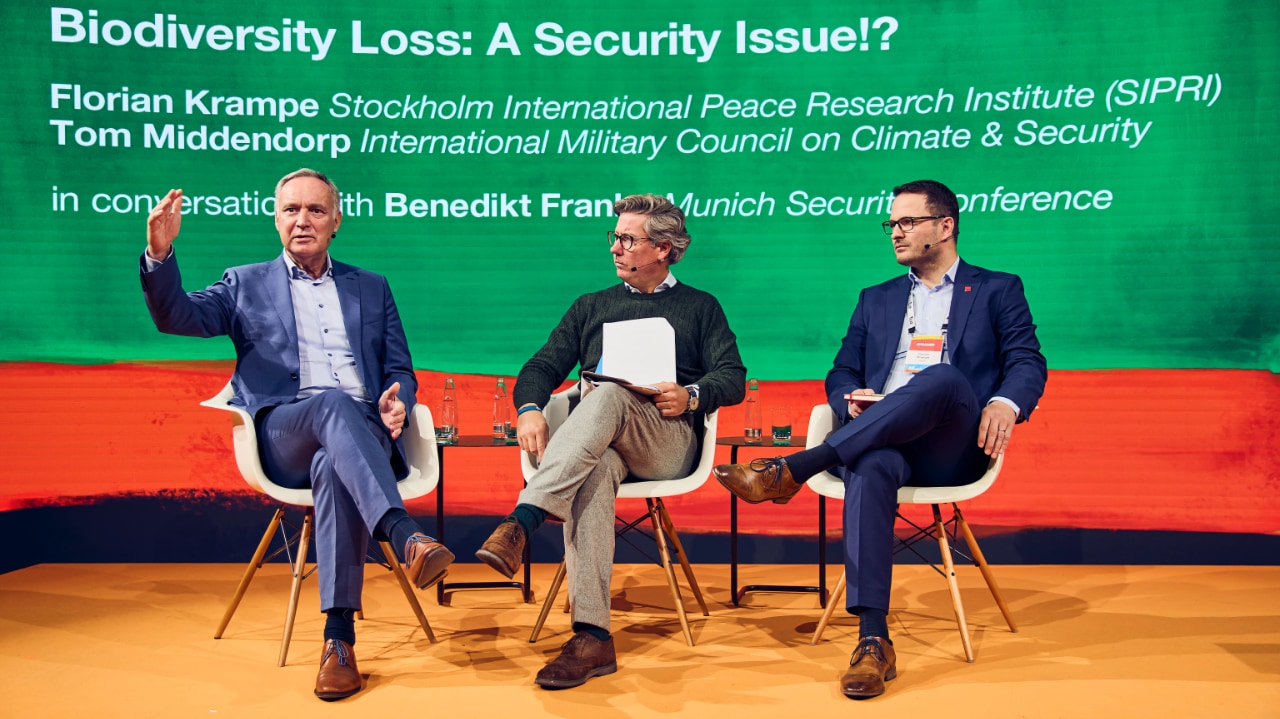The destruction of natural ecosystems is becoming a global security issue, as former NATO general Tom Middendorp, Benedikt Franke (Munich Security Conference) and Florian Krampe (Stockholm International Peace Research Institute) discuss in their DLD Nature conversation.
This insight may come as a surprise to many. Middendorp himself freely admits that climate change was not at the top of his head until he had an “eye -opening moment” as a commander in Afghanistan. Tensions between farmers, citizens and the Taliban largely came down to conflicts over water scarcity, he recalls.
In many other regions, too, climate change acts as a “risk multiplier” for conflicts, Middendorp says, because extreme weather and higher temperatures contribute to resource scarcity and destabilizing livelihoods, leading to tensions, extremism, and migration flows.
“To me, climate change and biodiversity are also a matter of national security”, Middendorp says. To bring more attention to this often overlooked fact, he wrote a book, The Climate General.
Krampe emphasized the need to recognize these risks and address them now, rather than waiting for definitive proof of causality, as was the case with the climate change debate.
“We can’t make the same mistake that we made with climate and security”, Krampe argues. “If we wait for facts and prove that climate change or biodiversity loss causes conflict and causes insecurity, we will be too late.”
Benedikt Franke presents a compelling case of the impact that climate change has around the Horn of Africa, where the average water temperature has risen by more than 2 degrees Celsius over the past 30 years.
“That means the fish need to swim further down” and Somali fishermen lose the source of their income. “That means they need to turn to other sources of feeding their families”, Franke says. “That means they’re left with piracy and crime. That means war. Impact on supply chains, etc., etc.”





